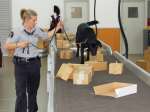
Dairy prices hit their highest level so far this year in the August 3 GDT auction, encouraging cautious optimism that a corner might have been turned by the struggling industry. The overall GDT index gained 6.6%, with an average given price of US$2435 per metric tonne, the highest since last November. The all-important whole milk powder price lifted 9.9% to US2265/t, the highest since December 2015.
Fonterra yesterday lifted its 2016-17 forecast Farmgate Milk Price by 50 cents to $4.75/kgMS.
Commodity prices rose for a third straight month in July, led by dairy products and meat. The ANZ commodity price index rose 2%, bringing its three-month gain to 6.9%. According to the bank, dairy rose 4.1% month-on-month, with meat up 2% in the latest month – led by a 4.4% increase in lamb prices and a 2.1% gain by beef. The horticultural sector also is doing well, with notably strong returns in kiwifruit and apples.
Meanwhile, other positive signs for the rural sector include PGG Wrightson, recently posting stronger-than-anticipated annual results and both fertiliser co-ops Ravensdown and Ballance also announcing strong profits and rebates to shareholders.
While these early positive signs do not mean everything is booming in the sector – far from it – it makes a nice change to see a brighter outlook for the new season ahead.
In the meantime, another degree of certainty farmers need is that the people they hire to work for them know what they are doing. As head of Rural Contractors New Zealand, I urge farmers to ensure the agricultural contractors they engage are members of our organisation.
In tight times, some farmers may think getting the cheapest person to do contracting work is a good way to save money, but this can prove false economy. A recent case saw a Central Otago farmer lose a $60,000 linseed crop due to a mistake in applying spray to a crop.
If farmers use a registered chemical applicator, preferably a member of RCNZ, they can ensure as far as possible that the potential for these kinds of mistakes is minimised.
RCNZ members who are part of our registered chemical applicator scheme are trained and regularly updated in the safe and expert handling of applying chemicals to crops and pastures. Our chemical application accreditation programme aims to meet the needs of our members and the industry as the application of agrichemicals has to be carried out in a competent and professional manner to ensure the enhancement of the crop and the safety of the operator, the environment and the public.
Of course mistakes are going to happen, but using a RCNZ contractor who is part of our insurance scheme means they will have insurance cover in these types of circumstances.
We all know farming is full of uncontrollable factors – the weather, commodity prices and the value of the dollar. But by farmers using contractors who are registered and part of RCNZ, they can at least lessen the chances of something untoward and costly happening.
• Wellsford-based agricultural contractor Steve Levet is the president of the Rural Contractors New Zealand (RCNZ).
- RURAL CONTRACTORS NEW ZEALAND
- RCNZ
- Fonterra
- Ballance

















